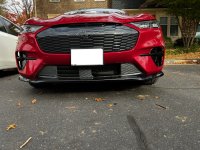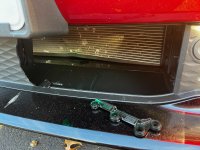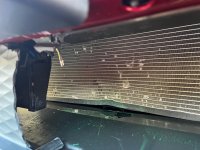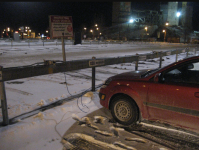Justgeeee
New member
We have the Ford Mustang Mach-E and we love it. We got it in April of this year and its has been wonderful. The speed and power of the vehicle is not something I should be driving. I find myself going 90+ mph and it just feels like your gliding. Took it for a few road trips and the trip planner in the Ford App makes it easy to find charging stations. We don't have a charger at home because there are so many near us at places we usually go shopping or have appointments so its easier to charge out instead of paying $3K to have a charger installed at home. I hear Chevy is offering a credit though to have the charger installed at home for you. There are new tax credits in the US which should help with adoption but the prices are still really high and not that affordable.
Sadly, since its a newer model EV parts are hard to come by. A piece of cement or brick hit the front messed up the radiator and its been in the shop waiting for parts for 2+ months now. Hoping within the next 5 years there will be way more chargers, more robust EV supply chain, and more affordable prices.
Sadly, since its a newer model EV parts are hard to come by. A piece of cement or brick hit the front messed up the radiator and its been in the shop waiting for parts for 2+ months now. Hoping within the next 5 years there will be way more chargers, more robust EV supply chain, and more affordable prices.



